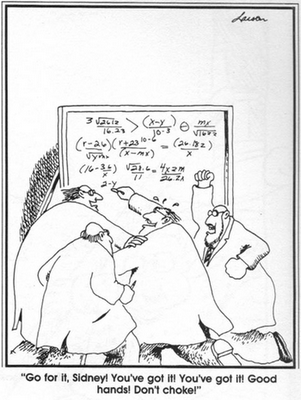MooreBonds
Thinks s/he gets paid by the post
It was certainly difficult to get an experimental confirmation of this theory. But nothing new was discovered here. Nothing new was added to the standard model of the universe. This massive and expensive effort did (probably) confirm the view held by 90+% of physicists. It's not a new theory. It's not a new discovery. It's an experimental confirmation. That's good, but the celebration seems excessive.
But how can you say that nothing was discovered here, when you say yourself that this discovery is 'proof' of a widely held theory? There have been several theories in our scientific past which turned out to be incorrect, once some scientific experiments indicated a different answer. There were other theories that tried to explain part of the Unified Theory, but until they could confirm which theory was correct, they couldn't rule the others out for sure.
And remember that this model is not just some esoteric, intangible way of ordering things like a foodchain pyramid, or Maslow's Hierarchy of Needs - it's an equation that we can now use to understand why the universe does what it does -and predict what would happen if we did X or Y.
Before Maxwell developed the various equations governing how electric fields, etc. work, scientists were aware for centuries of the concept of static charge...but they had no idea what was going on. They rubbed a metal bar w/ a wool cloth, and that made their arm hair stand on end. That was the extent of their understanding.
But after an equation told them that a tiny particle, with a certain 'charge', did certain things, and you can predict how it would behave in different scenarios....then they could isolate this particle. And shoot a ton of them at a phosphorus screen, and create a Cathode Ray Tube. Or once they understood the equations of waves, they were able to modify the amplitude of certain waves, and create AM radio broadcasts.
All of this was possible because they understood the basic principles of just WHAT an electromagnetic field is and WHY those charged particles behave like they do. They didn't just take an electric wire, and randomly decide to aim it at a tv screen to see what would happen.
Likewise, once we establish the mathematical equations of WHY a particle has mass...it's 'similar' (to some degree) as to understanding WHY some tiny particles have a certain electric charge, and behave in certain ways.
It can be very difficult to comprehend, because mass is a physical property which we are all familiar with on a daily basis (myself among those who are TOO well familiar with it
Last edited:

